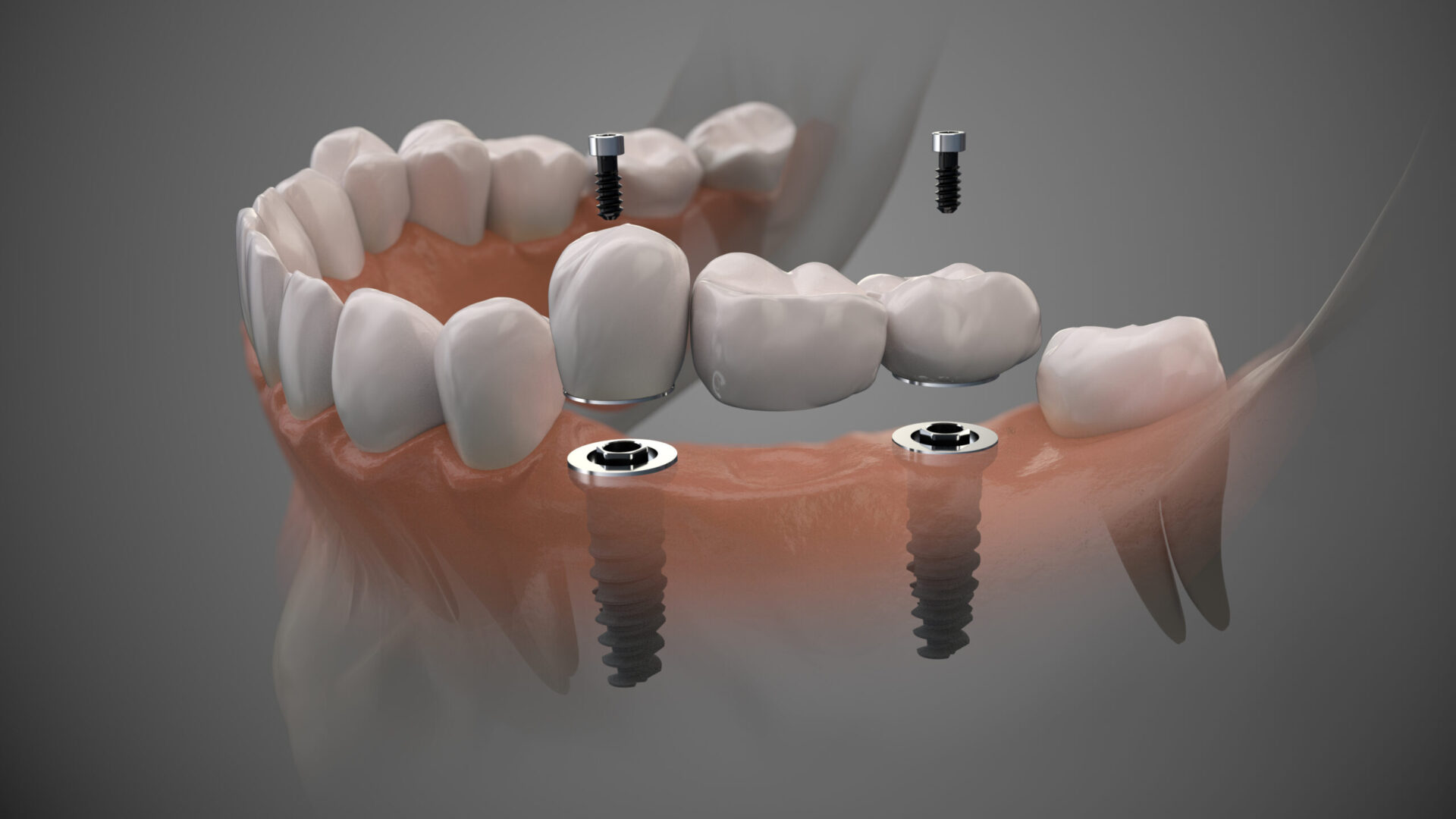It is an inevitable fact of life that as we age, our teeth change, or we might lose them. On the bright side, you have more options than ever when you damage or lose a tooth as an adult. For most people, dental implants are an ideal choice!
However, there are always risks. If you suspect that you are dealing with bad dental implants, you may feel scared and overwhelmed. Today, we will discuss what to do if you suspect you are dealing with bad dental implants.

A dental implant is an artificial tooth replacement when you have lost a tooth. The artificial tooth is placed on top of a metal (e.g., titanium etc.) implant post that your dentists will place into your jawbone. This acts as a replacement for the root of the tooth.
After that, a zirconia or ceramic crown is placed depending upon the client’s preference and affordability.
Dental implant surgery is very effective. The artificial teeth are as strong as natural teeth and can last up to 15 years before the crown needs to be replaced. However, they do carry some inherent risks.
You can experience the following problems or side effects of dental implants:
Gum disease or recession is one of the more common risks. If you notice gum tissue receding around the implant, you might also notice that there is some pain and inflammation. This gum inflammation could lead to bone loss around the implant.
This loss of bone and inflammation of gums is called peri-implantitis and should be looked at by a dentist as soon as possible to avoid the loss of the dental implant altogether. Gum disease is most frequently caused by bad oral hygiene.
Your dentist might notice inflammation of the sinuses (hollow spaces adjacent to our upper jaw). This is professionally referred to as sinusitis and may include symptoms including:
Osseointegration is the process by which the bone grows around your implant screw. If the bone fails to grow, you might find yourself with a loose tooth. If osseointegration fails, you can try to replace the implant. However, your dentist may want to discuss alternative options with you.
Dental implants are a suitable replacement for natural teeth, but unfortunately, not everyone is eligible to get them. An implant specialist will consider a variety of factors, including your overall physical and oral health.
Following is a list of such risk factors:
Due to the nature of diabetes, the chance of a successful dental implant is low. This is mainly because people with diabetes have low healing despite a successful dental implant surgery. They also have low bone adaptation and regeneration around the implant.
Smoking has long been known to have severe consequences for your overall oral health. When it comes to dental implants, however, there are significant risks. Smoking during the recovery process will delay healing and cause failed osseointegration.
Gum disease post-surgery is a problem in and of itself. However, if it is occurring before your surgery, there is a higher chance of dental implant failure.
Your oral surgeon will take a thorough medical history before determining whether dental implant surgery is right for you. Certain medications may make healing from surgery difficult.
The appearance of complications or drawbacks of dental implants is proof that something may be wrong. These signs include:
Like any surgical procedure, it is expected to experience some level of pain for the first week or so after getting dental implants. However, if the pain is persistent or difficult to manage, you may be experiencing dental implant failure.
One of the most noticeable signs of dental implant failure is having a loose tooth. It could be due to osseointegration failure. If you notice a loose tooth, it is essential to contact your dental surgeon right away.
One of the risks of dental implants is nerve or tissue damage. This happens when your dental implant is placed too close to a nerve. While this may present as pain, it could also show up as a numb or tingling sensation. If you are experiencing this, contact your oral surgeon right away, as this could be a sign of possible nerve damage.
Follow the steps below to make sure that the problems of bad dental implants are dealt with professionally.
Our first piece of advice is to take a deep breath. Almost all complications can be treated, specifically if detected on time.
The next step is to contact your oral surgeon. They will thoroughly guide you, take radiographs (X-rays) and do a detailed examination of your dental implant to rule out the cause.
Once a dentist has examined your tooth, they can help you create a plan to treat the problem. This may be as simple as taking pain medications or an antibiotic to clear up an infection, or it may involve the removal of the dental implant altogether.
Suppose your dentist decides to remove your dental implants. In that case, they will then evaluate the risks and decide whether you should go for a second dental implant surgery or if the implant failure is too extreme and another route needs to be taken, such a dentures.
In the majority of the cases, dental implants do not cause cancer. Materials such as titanium, ceramic, zirconia, etc., are human-friendly and safe for us. However, sometimes prolonged chronic inflammation (prolonged) around the implant, such as peri-implantitis, can trigger cancers like squamous cell carcinoma.
To avoid this, visit your dentist as soon as you notice signs of inflammation such as pain, swelling, pus, etc.
To sum it up, dental implants are an amazing innovation in dentistry, but only if a professional places them. Bad dental implants can have adverse effects on your oral and overall health.
At Hesed Dental in NJ, dental experts place dental implants within your jaw after a thorough assessment and analysis. We provide a hassle-free treatment plan for you. Book your appointment today to get dental implants in NJ.

Hesed Dental 543 Gorge Road Cliffside Park, NJ 07010
201 941 8877